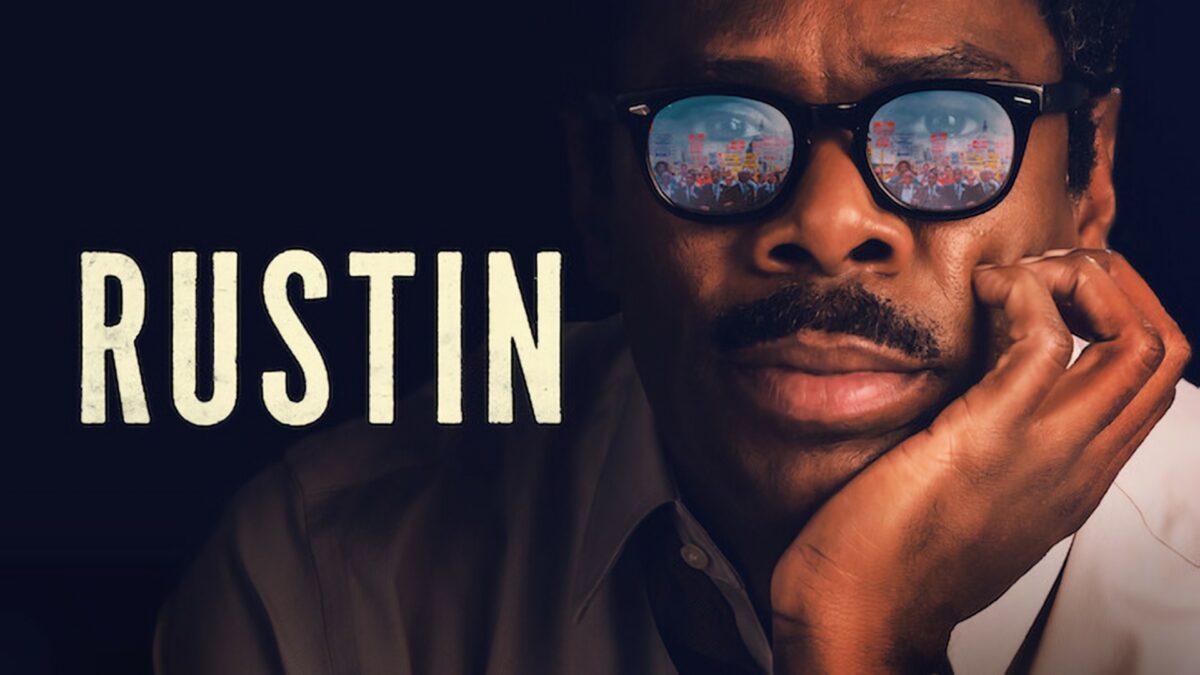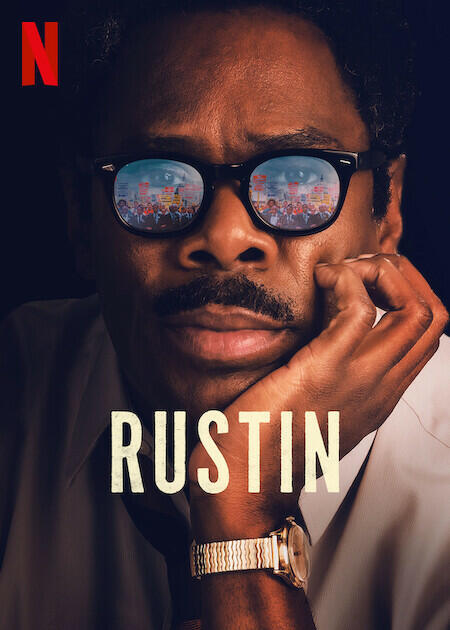
See how the Oscar®-nominated Rustin hits the Save the Cat! story beats.
Written By: Julian Breece and Dustin Lance Black
Story: Julian Breece
Directed By: George C. Wolfe
Genre: Superhero
Cousins: Marshall, Hidden Figures
Opening Image: A montage of segregation scenes in the midcentury American South: peaceful sit-in protesters are smeared with food by an angry mob; six-year-old Ruby Bridges is escorted by armed marshals to desegregate her New Orleans elementary school; a stoic, sunglasses-wearing member of the Little Rock Nine endures taunts from teenaged racists trying to prevent integration of the high school.
Opening titles describe the thesis world of America in 1954, where the U.S. Supreme Court has ruled segregation unconstitutional, yet these ugly incidents persist.

Theme Stated: Bayard Rustin (Colman Domingo), a visionary, charismatic activist, attempts to convince his dear friend, Martin Luther King Jr. (Aml Ameen), to become a more powerful force in the Civil Rights Movement by leading a protest in Los Angeles during the 1960 Democratic Convention. Rustin knows MLK is invaluable—“our man”—and tells the hesitant King, “Friend, one of my greatest joys is watching you rise.”
Set-Up: MLK and Rustin are like brothers, but in the personality-driven Civil Rights Movement, their alliance is a threat. The old guard, including Democratic congressman Adam Clayton Powell Jr. (Jeffrey Wright) and the NAACP’s Roy Wilkins (Chris Rock), object to Rustin’s bombastic ideas and his attempts to elevate King, amid the other leaders’ individual political jockeying. They use knowledge of Rustin’s homosexuality and how his association with King could negatively impact the reverend’s profile to drive a wedge between the friends.
Catalyst: Rustin believes his collaboration with King will supersede whatever the other leaders of the movement threaten, and that his big ideas will prevail. He makes a political calculation to bluff the NAACP by resigning, believing MLK will reject it, support him, and allow him to continue in the organization as a leader. The plan backfires, and King thanks Rustin for his service. Rustin is out.
Debate: Rustin finds himself silenced and stuck in an unfulfilling desk job at the War Resisters League. Stasis = death as he becomes increasingly irrelevant, an outcast among the old guard, and an outsider among the young upstarts gravitating toward the message of Malcolm X rather than that of Gandhian nonviolence. Does he play it safe and fade into oblivion or make a bold move?
Break into Two: Rustin can’t resist doing what he does best: swinging for the fences. He has an idea to bring together young people to plan the largest peaceful protest in the history of the nation, a two-day event to shut down the nation’s capital with “angelic troublemakers.” NAACP leadership rejects the idea, but Rustin won’t be denied.
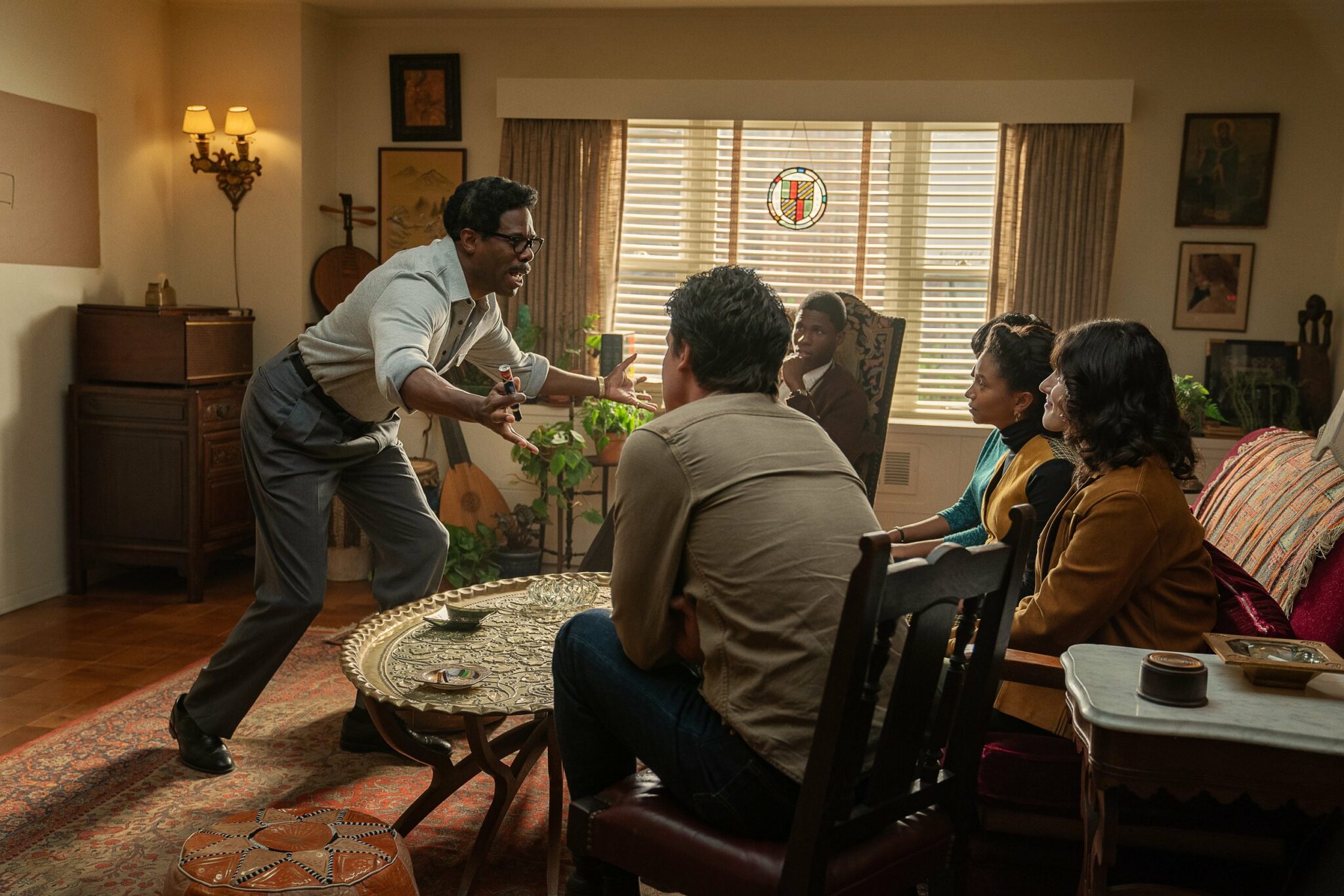
B Story: Rustin is a gay man who openly embraces his identity, but his internal bad guy fuels the six things that need fixing. At a time when homosexuality is a crime, he makes risky decisions putting him in positions that threaten his life and livelihood. Rustin has an “assistant” and lover, Tom (Gus Halper), a young white man dedicated to the movement and to discretion.
Fun and Games: Despite living and working with someone who truly loves him, Rustin begins a flirtation with the married Reverend Elias Taylor (Johnny Ramey).
Rustin quits his job and realizes he must reconcile with MLK to get the Civil Rights Movement on track. He travels to the King household and the two collaborate on the march idea, then see the promise of the premise, when reluctant NAACP leaders agree to support the effort. The leaders demote Rustin, but A. Philip Randolph (Glynn Turman) reappoints him deputy director, putting Rustin fully in charge of the march. With the support of the indominable Cleve Robinson (Michael Potts), chief “troublemaker” Rustin rallies young and seasoned activists alike to raise money for the event.
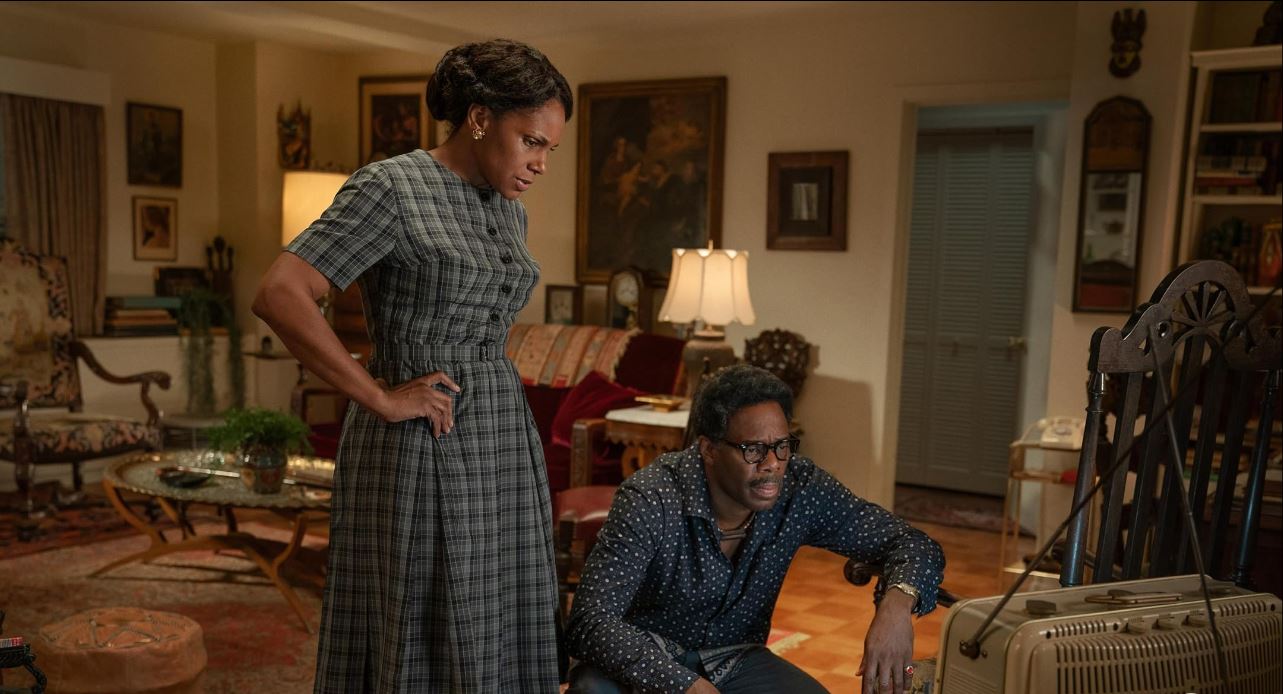
Midpoint: With a seven-week ticking clock until the march, Rustin visits Washington DC, ostensibly to meet with the police and National Park Service. He learns that the authorities and the FBI are determined to thwart his efforts, and that NAACP leadership is actively undermining plans to hold the event over two days.
Bad Guys Close In: The leaders of the march realize the White House and political forces are scheming to have the event cancelled. Rustin argues for keeping the original two-day plan, but it’s a losing battle.
Rustin’s internal bad guys cause more problems when he and his clandestine lover, Elias, barely avoid a raid on a gay bar, which could’ve been catastrophic for them both.
All Is Lost: The Dixiecrat Strom Thurmond impugns King and the march from the Senate floor by accusing Rustin of being a communist.
Rustin’s love life is in shambles, as both Tom and Elias are jealous and conflicted.
The ambitious Adam Clayton Powell flexes his power to potentially derail the march by invoking Rustin’s previous arrest for indecency in Pasadena, California. As Rustin’s true nemesis is the specter of being outed/disgraced on a national scale, Powell’s antics threaten a whiff of death.
Dr. Anna Hedgeman (CCH Pounder) expresses unhappiness that no women in the movement are included among the speakers for the march, and, under the circumstances, many women have decided not to participate.
Elias’ wife tells Rustin she knows about their extramarital relationship, and it must end.
The DC police plan to close city operations and mobilize troops during the march.
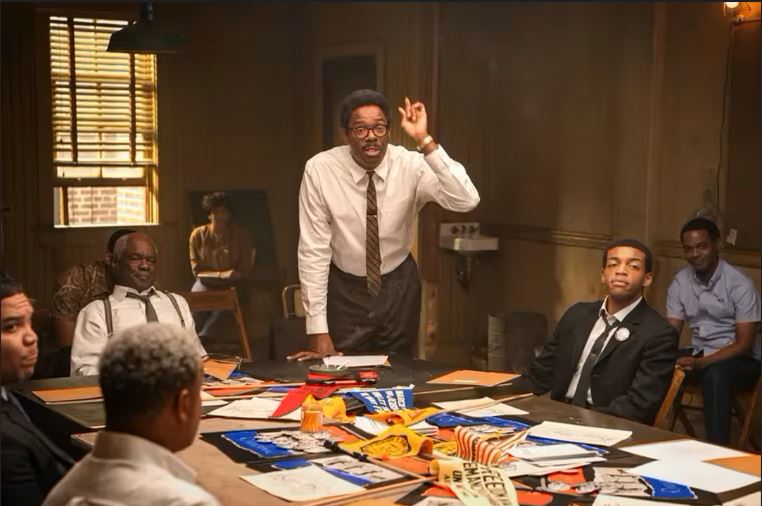
Dark Night of the Soul: When Strom Thurmond releases Rustin’s Pasadena arrest record to the media, his worst fear is realized. Rustin beats himself up because he should’ve known better. His remorse, regret, and public disgrace could’ve been avoided if he hadn’t been so careless at the time.
Rustin confronts MLK. In light of all he has done for the movement, and all that still needs to be done, he resents constantly having to justify his existence. Though some leaders are expecting him to resign, Rustin refuses, saying, “They’re gonna have to fire me, because I will not resign. On the day that I was born Black, I was also born a homosexual. They either believe in freedom and justice for all, or they do not.”
King publicly supports Rustin, and the news of the arrest does not stop the momentum of the movement.
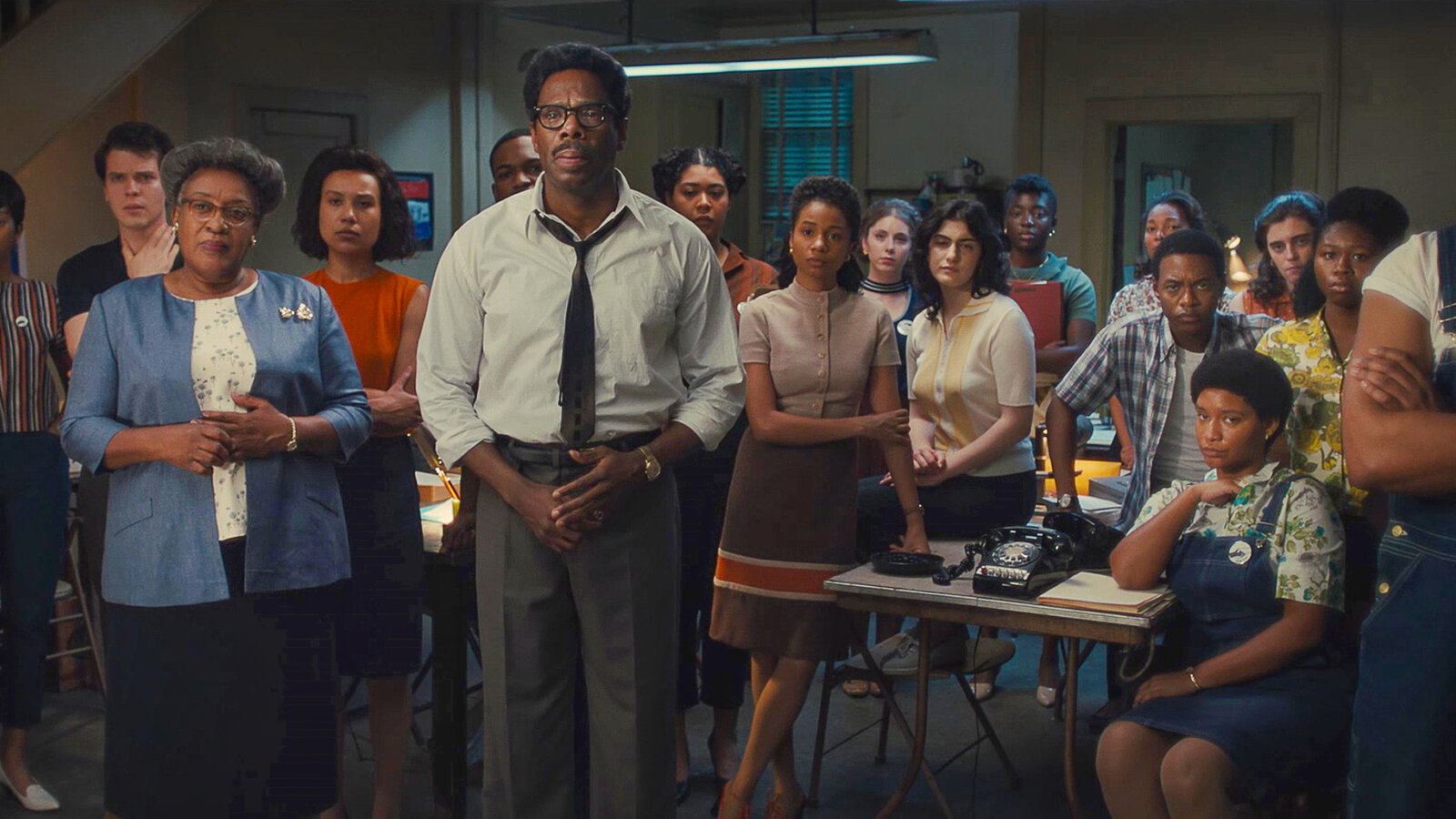
Break into Three: The leadership committee realizes the march may be larger than expected, with the potential to mobilize exponentially more protesters than planned.
Finale: Hundreds of thousands of protesters storm the castle of the Washington DC Mall. Thanks to Rustin’s vision and tenacity, the march is a resounding success, and King delivers an electrifying speech that re-energizes the Movement. The “Big 10” leaders are invited to meet with President Kennedy at the Oval Office, but Rustin opts to stay behind to help with clean-up. He quotes “Ma Rustin,” saying, “No man is less valuable because he picks up trash to care for his own.”
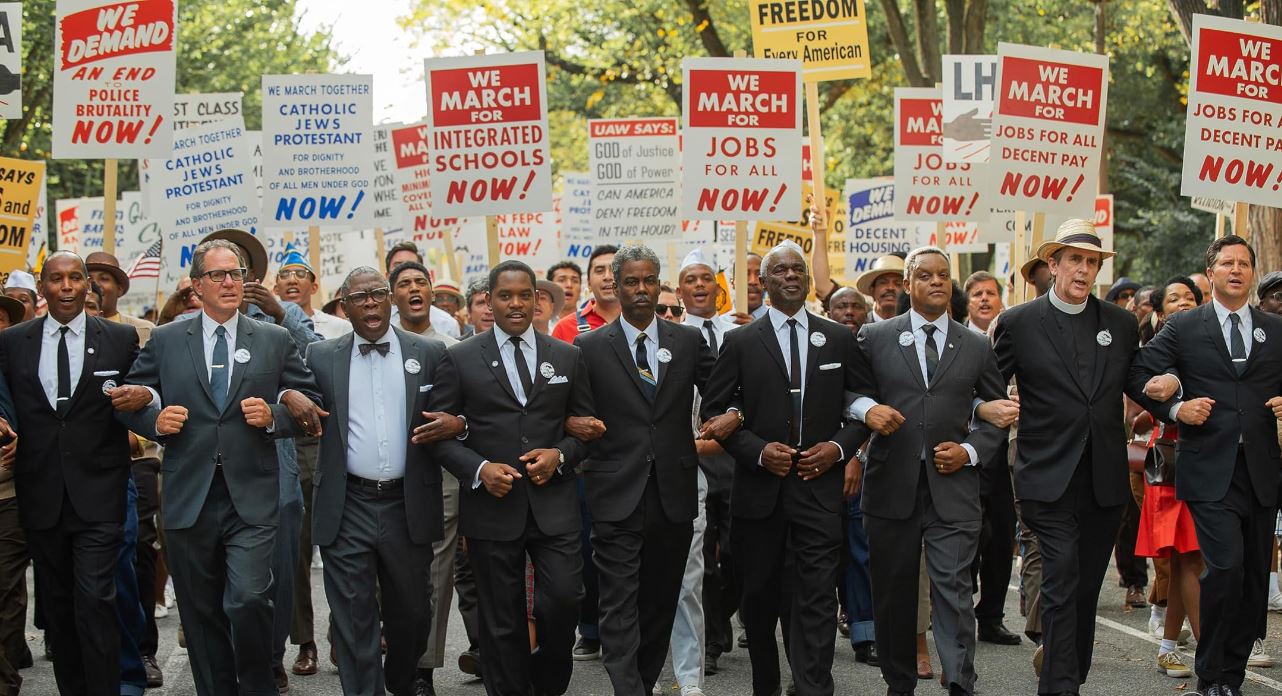
Final Image: Rustin picks up trash, as closing titles describe the new synthesis world, where the March on Washington is the largest peaceful protest to date, the Civil Rights Act is passed by Congress, and Rustin eventually finds true love.


